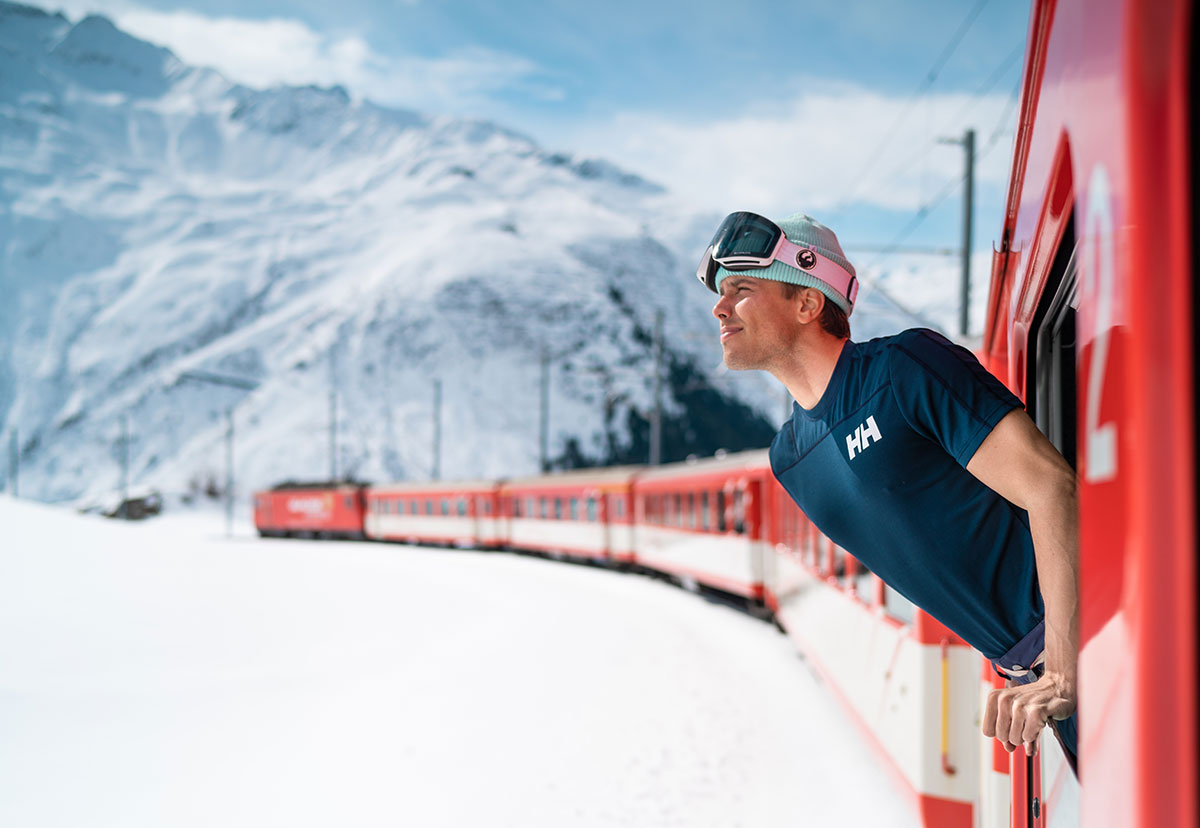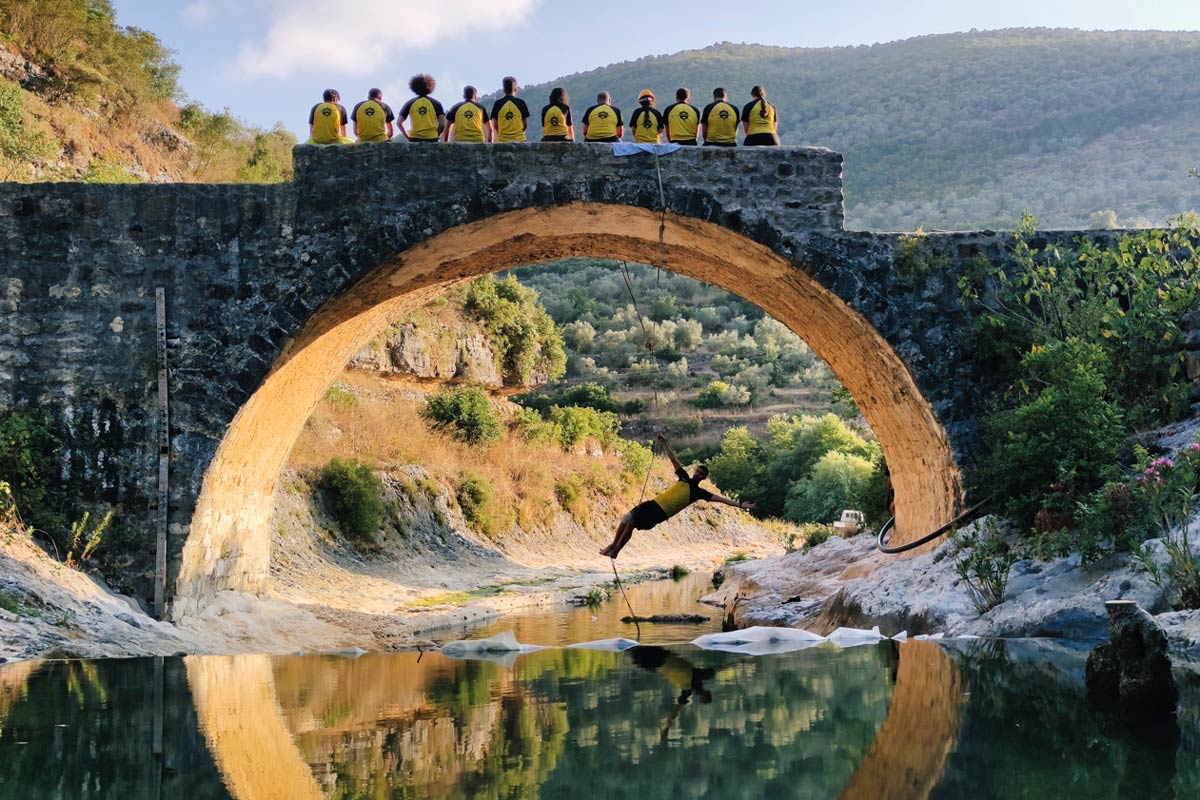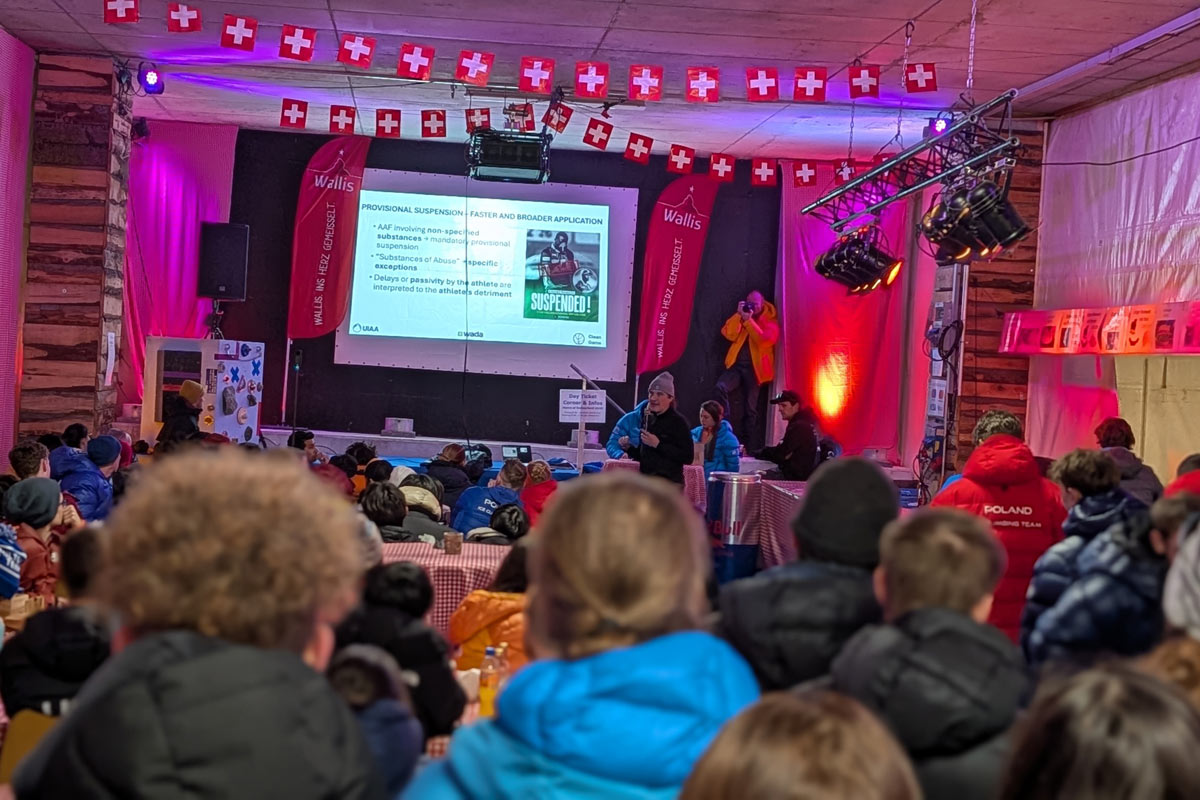BEST PRACTICES IN MOUNTAINEERING AND
MOUNTAIN-BASED SPORTS
Protect Our Winters Switzerland (POW) is the outdoor sports community’s leading voice against climate change and part of the global POW network. POW turns passionate outdoor people into effective climate activists. Together with athletes, members and partners POW acts on systemic solutions against climate change. We are a young NGO of outdoor sports enthusiasts that actively works together with mountaineers, skiers, climbers and mountain lovers to protect our beautiful playgrounds.
POW Switzerland is applying for the Mountain Protection Award with a project which highlights and reduces the carbon footprint of food consumption in Alpine mountain huts and takes positive action towards reducing this hidden cost of recreation in the outdoors. By mobilizing visitors of huts such as climbers, hikers and mountaineers as well as our community and the Swiss Alpine Club’s (SAC) mountain huts to adopt a more vegetarian and locally sourced diet, we turn passionate mountaineers into effective climate activists.
No one has ever tackled food in Alps, which is traditionally heavily reliant on meat in SAC huts – although agriculture and nutrition is the third-largest source of CO2 emissions in Switzerland after housing and transport, driven largely by dairy and meat production. With our project we not only aim to raise awareness for this hidden cost of mountaineering and outdoor sports, but we also foster public involvement by mobilizing guests, POW members and volunteers to transport food and food waste on foot, thereby cutting down on helicopter drops.
The project’s success is measured by carbon emissions reduced by consuming meat-free meals as well as by the reduction of helicopter flights to transport food and food-waste. We aim for a 50% reduction of meat in mountain huts in the long-term and to create the momentum for the SAC to undertake a policy shift towards a meat-free diet. We bridge the gap between local producers/farmers and hut owners and give them the opportunity to find other options to buy their produce, become more transparent and further reduce their emissions. This in essence helps the local community to work closer together and thrive.
OPPORTUNITIES FOR VOLUNTEERS
The vegetarian half-board on Friday and Saturday is locally sourced. By engaging the huts to serve local and vegetarian meals, we transform them into climate activists and substantially reduce CO2 emissions from nutrition. Furthermore, we mobilize guests, volunteers and POW members to transport extra food and vegetables and ensuing food waste to the hut and back on foot. This results in fewer helicopter drops, creates ownership of the campaign, and ensures heightened awareness of the hidden cost of Alpine nutrition.
Our first weekend in March 2019 was a huge success: all food was carried up by the guests of the hut who were not only motivated to cooperate in the project but also participated in the keynote speech in the evening in the packed Maighelshütte in Graubünden. We give the huts and individuals involved a platform to reflect on behaviour and habits and encourage them to make a change within their own communities (be it at home, work or friends etc..). The project encourages a sense of unity and bond for the mountains and aims to reinvent the cultural norm for hut visitors.
RELATIONSHIP WITH LOCAL COMMUNITIES
By working exclusively with local suppliers, we directly sustain the local alpine economy. Furthermore, this opens up new possibilities for the supply chain for mountain huts who might not be aware of all possibilities of local food sourcing as we learned in our first project weekend in March 2019: the staff of the huts only knew some of the suppliers, we in turn opened doors to new ones.
All food is locally sourced, thereby cutting down on transport of food. By sourcing seasonal food only, we further ensure that local economies and the environment profit likewise.
COLLABORATION WITH LOCAL AUTHORITIES
For our first edition this was not necessary, but it is our aim to integrate regional tourism boards as well as the communes of the respective huts. We are able to see a number of opportunities in working together with these areas. They could serve as a platform for local huts and producers/farmers to contact each other and more importantly the tourism boards would have the unique opportunity to engage in storytelling of the huts project and how the locals are trying to positively impact the climate in their own backyard.
GOALS AND OBJECTIVES
From an environmental perspective, where SAC huts do an increasingly good job is in water or energy supply by renovating old huts, insulating them better and improving waste and water management. However, there is still huge potential in the area of nutrition: Almost all meals offered in half-board in the huts include meat, only around 5% of meals served are vegetarian. Our goal is to drastically increase this percentage to 50% in the long term, thereby reducing the impact of Alpine nutrition on climate change.
A bottom-up approach is taken: In 2019, the first year of the project, we start with two to three huts. In the following years, we gradually expand the geographical scope to cover more huts in Switzerland. As the project develops, we aim to extend its scope to other Alpine countries. We aim for a 50% reduction of meat consumption in Swiss mountain huts, which would result in a reduction of around 450 tons of CO2 emissions per year alone from dietary changes.
We reduce carbon emissions on two levels:
1. Indirectly, through avoided emissions from a meat-free diet. With the campaign, we target around 1000 meals in 2019. On average a meat-free diet saves about 3 kg of CO2. Thus, we save around 3000 kg of CO2.
2. Directly, through avoided helicopter flights for transport logistics for food and waste. An average helicopter drop equals around 800 kg. We estimate that with transport logistics on foot, we save two to three helicopter drops in total.
Finally, we grow our support base in segments outside of skiing and snowboarding, which is in line with our strategic goal to expand into the non-snow outdoor community.
Output metrics
– Reduction of the carbon footprint of the three participating mountain huts
– Reduction of the nutrition carbon footprint per hut
– Reduction of the carbon footprint of avoided food and waste transports by helicopter
– # of media hits and social media campaign following
– # of people reached with the action
PROJECT MANAGEMENT
The Project aims to implement these measures into the SAC huts with the goal by 2025 to have 50% of vegetarian nutrition and meat free days integrated in regular cooking regimes. We reduce carbon emissions on two levels. Firstly, it is indirectly through reduced emissions from a meat free diet. Secondly, directly through avoided helicopter drops, for the transport logistics of food and waste. It is also the transport from food that would normally be purchased in supermarkets, which have a huge carbon trail as these foods can come from all over Europe.
The project initially requires a SAC hut and local producers/farmers to become involved. This would require a team member from POW to create that initial link and serve as a liaison for both of these parties. Once this area of the project is set up, then the next step would require the hut to inform the guests arriving that weekend if they would like to help carry up the food. Over the weekend it would require an engaged POW volunteer to take care of the logistical questions and engage and educate the guests.
HOW WE COMMUNICATE
We communicate via different formats on our own and partners’ channels (blog, social channels…) to ensure sustained attention for the campaign. Additionally, we build a social media campaign around the project showing the true costs of nutrition in the Alps and engage our audience to eat climate-friendly.
Our first edition in March 2019 was already featured in a blog post of one of the world’s largest business initiatives to give back to the environment: «1% for the Planet». Furthermore, an article is scheduled to appear in the German mountaineering magazine ALPIN in Fall 2019. Further articles are being negotiated in two other outdoor magazines.
By aligning our ambassadors with the project, we successfully leverage their voice and influence. POW ambassadors are present in the huts and engage in post-action messaging.
This is also a great opportunity to be supported through the UIAA. This would enable a wider reach into the target group, which can also be beneficial for UIAA in positioning themselves further as an organisation, which strives to make the planet a better place. It can open up the doors for a bigger audience whereby together we can send a stronger message of awareness and action. We also see the opportunity to work together on this project in summer where we can activate the climbing community to join in on the action.
Finally, one of the most important elements in our communications strategy is the film about our huts weekend in the Maighelshütte SAC that will be released this coming autumn. During the whole weekend in March 2019 we had a film crew present to document the project. The film will be around 8-10 minutes long and will be exclusively premiering at the Freeride Film Festival in November.
To discover more about the UIAA Mountain Protection Award please click here.
Please note that the content published in this article is courtesy of the Award nominee. The UIAA has made minor revisions to the original submission.



